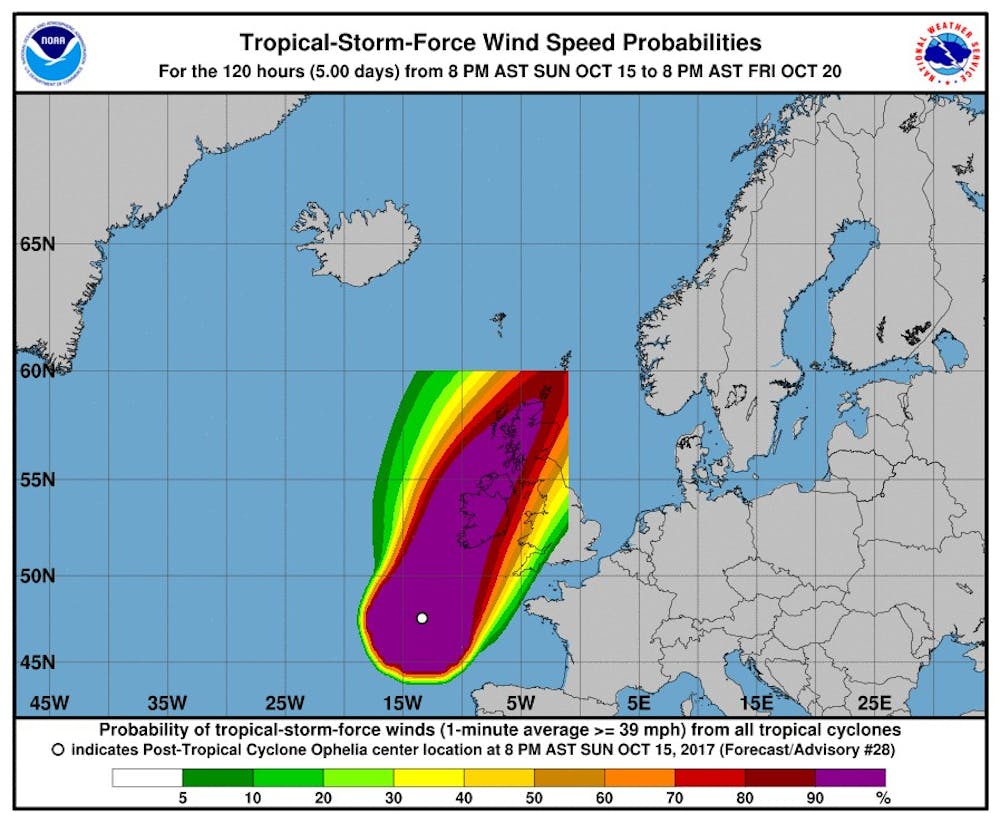Ahead of schedule, Tropical Storm Alberto has threatened to flood much of the Southeastern United States and has already caused at least two deaths in North Carolina alone. As the 2018 Atlantic hurricane season approaches, scientists and educators are evaluating the overwhelming effects of these storms.
The season officially began June 1 and will continue until Nov. 30.
Though hurricanes and tropical storms may seem like the same natural disaster, the title of "hurricane" is only given to storms with wind speeds surpassing 74 mph.
Similarly, categorical designations for hurricanes are determined by the wind speeds reached during the storm, rather than by level of flooding or other impacts.
Most people consider the torrential downpours and accompanying high winds to be a nuisance at best, a threat to their lives and livelihoods at worst. However, UNC marine sciences doctoral student Carter Smith sees a need for reframing the way people think about hurricanes and tropical storms.
“I would say that hurricanes are not inherently bad for coastal habitats," Smith said. "They’re bad for people trying to live on top of or right next to coastal habitats.”
According to Smith, most people only consider the obvious effects of a tropical storm, such as the powerful storm surges in which tidewaters rise and flood inhabited areas and the property damage that might ensue. But storms can have deep-seated effects on climate change, aquatic habitats and human health as well.
Atmospheric warming has been a factor in the decades-long trend regarding intensification of tropical storms, said Hans Paerl, a distinguished professor of marine and environmental sciences.
He said in instances when storms cause flooding, an abundance of organic matter is washed over impervious surfaces, like parking lots and into wetlands and other aquatic habitats. This increase in decomposition of organic matter leads to a rise in levels of atmospheric CO2, effectively canceling out the CO2 removed from the atmosphere through photosynthesis, Paerl said.



